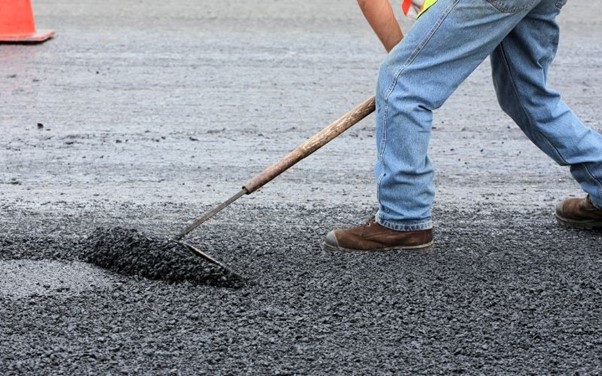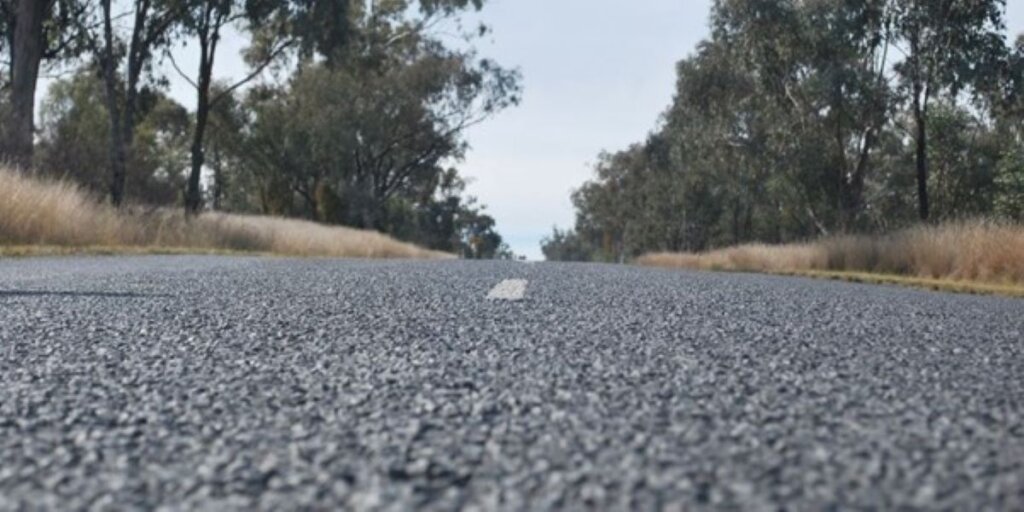In your search for the perfect surfacing material for your next driveway project, you have more than likely stumbled across the phrases ‘blacktop’ and ‘asphalt’. While these substances certainly look alike, function similarly and may even be used interchangeably in some regions, blacktop and asphalt are in fact two separate products. Made from the same two main ingredients, crushed stone and bitumen, the difference between blacktop and asphalt lies largely in how each is mixed.
In this article, we investigate all you need to know about both and explore the three key differences that separate these two popular surfacing materials.
Why Are Blacktop and Asphalt Popular?
Before we get into what differentiates blacktop from asphalt, let’s take a look at what makes these a preferred surfacing material for a multitude of construction projects. Blacktop and asphalt are pre-mixed, and unlike their alternative of concrete which takes longer to set, are both ready for use within 2 days of pouring. Both materials are well-liked for their reputation as durable and reliable surfaces, that are easy and cost effective to maintain.
How Does Blacktop Differ from Asphalt?
While very similar in many aspects, the two are very different substances used as a surfacing material. As mentioned earlier, the key to what sets these apart is in the way each is mixed. As a result, both materials have slightly different strengths and weaknesses, making each more suitable for certain jobs. Unlike blacktop, which only has one type and is more malleable, asphalt can come in many different grades and is typically tougher.
1. Differences In Composition and Method of Mixing
As both blacktop and asphalt consist of crushed stone and bitumen, the key difference between the two lies in the temperature settings and mixture ratios used to make each. Blacktop consists of significantly more stone than asphalt, making the ratio of stone to bitumen considerably higher. As a result, a blacktop driveway or road has a sparkly appearance. Due to the high ratio of stone in its mixture, blacktop is heated at around 300 degrees, which is responsible for its malleable nature and longevity.
In contrast, asphalt is produced by refining fossil fuels, and relies on adding crushed stones to act as a cutting agent for the thick substance. Asphalt is mixed at a reduced temperature, around 250 degrees, as any temperatures higher than this result in a poor outcome. While an asphalt surface is still durable, it lacks the flexibility of blacktop and thus can crack more easily.

An asphalt surface being levelled.
2. Differences In Usage and Suitability
Another key difference between blacktop and asphalt is their suitability for certain jobs. As blacktop is flexible and long-lasting, it is used for ‘everyday’ surfacing jobs that do not require a high weight capacity, and where easy and infrequent repairs are favoured. Blacktop also has a more aesthetic appearance than asphalt, which is why it is often favoured for areas where form matters just as much as function.
Blacktop is commonly used for:
- Driveways
- Roads
- Parking lots
- Paved pathways
- Playgrounds
- Paved basketball courts
Asphalt has a more durable nature, withstands the elements well and has unique waterproofing abilities that blacktop lacks. For this reason, asphalt is more versatile and is used in non-paving jobs, whereas blacktop isn’t. Asphalt can also hold a much more significant weight load and provides a thicker surface.
Asphalt is commonly used for:
- Major roads, freeways and highways
- Airport runways
- Cable coatings
- Soundproofing
- Pool linings
- Reservoir linings
- Damp-proofing
3. Differences In Types or Grades
The final crucial variation between blacktop and asphalt is the availability of different types, or grades, of each substance. There is only one type of blacktop, regardless of the stone to bitumen ratios the solution was mixed with. In contrast, asphalt can be made in many different grades, each with their own purpose and use:
Quiet asphalt is effective at reducing noise pollution and is typically found throughout residential communities or on main roads nearby homes.
Porous asphalt allows water to seep through its surface and into the soil, providing water management benefits which make it useful for parking lots.
Perpetual pavement is created by multi-layering asphalt, with a flexible yet strong base layer that prevents cracks, and a top layer that can be resurfaced easily without a full replacement.
Warm mix asphalt is created at a significantly reduced temperature, lowering fuel costs and reducing greenhouse gas emissions.
Hot mix asphalt is typically the same as blacktop, and the “hot” part refers to the high temperatures at which blacktop is mixed.
Perth’s Trusted Asphalt Contractors
At NK asphalt, selecting and installing the ideal blacktop or asphalt mix for your project is our speciality. We take all the guesswork out of the process, so you can relax knowing your new asphalt or blacktop driveway is in the hands of our expert asphalt contractors. That’s why NK Asphalt is one of the most trusted asphalt companies in Perth, maintaining our reputation for excellence since opening in 1989.
If you’re considering installing an asphalt or blacktop driveway at your Perth property, leave it to the experts and contact our knowledgeable team for a free measure and quote today.
share


